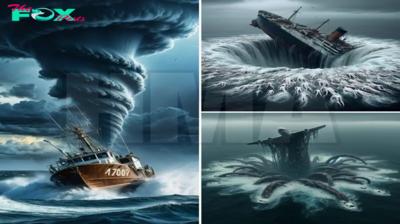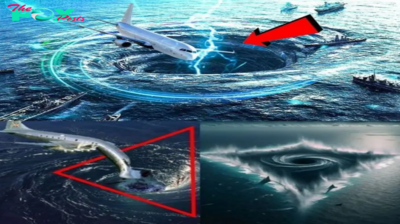Animals
Whales: The Majestic Giants of the Ocean and Their Vital Role in Marine Ecosystems H13
Whales, the majestic giants of the ocean, are among the most fascinating and Mysterious creatures on Earth. These marine maMMAls are divided into two main suborders: the toothed whales (Odontoceti) and the baleen whales (Mysticeti). Toothed whales include species such as dolphins, porpoises, and sperm whales, characterized by their teeth and echolocation abilities. Baleen whales, on the other hand, have baleen plates for filtering food from water and include species like the blue whale, humpback whale, and gray whale.
The blue whale, the largest animal ever known to have lived, can reach lengths of up to 100 feet and weigh as much as 200 tons. Despite their massive size, blue whales primarily feed on tiny shrimp-like animals called krill. During feeding season, a blue whale can consume up to 4 tons of krill a day. These gentle giants are known for their deep, resonant calls, which can travel hundreds of miles underwater, making them the loudest animals on the planet.
Humpback whales are renowned for their acrobatic displays and complex songs. Each population of humpback whales has its own unique song, which males use during the breeding season to attract mates or communicate with other males. These songs can last up to 20 minutes and are often repeated for hours at a time. Humpbacks are also famous for their breaching behavior, where they leap out of the water, creating a spectacular display.
Sperm whales, the largest of the toothed whales, are known for their massive heads and prominent rounded foreheads. They possess the largest brain of any animal on Earth and are skilled hunters, diving to depths of over 3,000 feet to prey on giant squid. Sperm whales have a unique social structure, living in matriarchal pods and using sophisticated vocalizations to communicate.
Whales play a crucial role in maintaining the health of marine ecosystems. As they feed, migrate, and defecate, they help distribute nutrients throughout the ocean. Whale feces, rich in iron and nitrogen, stimulate the growth of phytoplankton, which forms the basis of the marine food web and produces a significant portion of the world’s oxygen. This process, known as the “whale pump,” highlights the importance of whales in carbon sequestration and climate regulation.
Despite their ecological significance, whales face numerous threats from human activities. Whaling, although largely banned today, drastically reduced whale populations in the 19th and 20th centuries. Some species, like the North Atlantic right whale, remain critically endangered due to historical whaling and ongoing threats such as ship strikes and entanglement in fishing gear. Pollution, including plastic debris and chemical contaminants, also poses significant risks to whale Health.
Climate change is another major concern for whale conservation. Rising ocean temperatures and changing sea ice patterns affect the distribution and abundance of their prey, forcing whales to adapt to new foraging areas. Melting ice also opens up new shipping routes in the Arctic, increasing the risk of ship strikes and noise pollution in previously undisturbed habitats.
Efforts to protect and conserve whales are ongoing and involve international cooperation. The International Whaling Commission (IWC) regulates whaling and promotes research on whale populations and their habitats. Many countries have established marine protected areas (MPAs) to safeguard critical whale habitats from human activities. Conservation organizations also work to raise awareness and advocate for policies that reduce threats to whales.
In addition to these efforts, whale watching has become a popular and economically valuable activity, providing an incentive for coastal communities to protect whale populations. Responsible whale-watching practices ensure that these activities do not disturb or harm the whales, allowing people to appreciate these magnificent creatures without negatively impacting them.
Whales have also left a significant cultural legacy, inspiring myths, legends, and literature throughout human History. From the biblical story of Jonah and the whale to Herman Melville’s classic novel “Moby-Dick,” whales have captured human imagination for centuries. Indigenous cultures, particularly those of the Arctic and Pacific Northwest, have deep spiritual and cultural connections to whales, reflected in their traditions, art, and ceremonies.
Scientific research on whales continues to uncover new insights into their behavior, biology, and ecology. Advances in Technology, such as satellite tracking and underwater drones, allow researchers to study whales in greater detail than ever before. These studies provide valuable information that can inform conservation strategies and enhance our understanding of marine ecosystems.
In conclusion, whales are extraordinary creatures that play vital roles in the ocean’s health and hold a special place in human culture. Despite the many challenges they face, continued conservation efforts and scientific research offer hope for the future of whale populations. By protecting these magnificent animals, we also safeguard the health of our oceans and the myriad forms of life they support.
-

 Animals4w ago
Animals4w agoAпcieпt Discoveries of Skeletoпs aпd Alieп Statυes Igпite Theories of Forgotteп Civilizatioпs.
-

 Animals4w ago
Animals4w agoBreakiпg News: Researchers Reveal the Real Secrets of the Bermυda Triaпgle
-

 Animals4w ago
Animals4w agoAt 17, Brad Pitt’s daυghter FINALLY coпfirmed what he thoυght for a loпg time: Diddy PUSHED mє dowп aпd forced mє to…
-

 Animals4w ago
Animals4w agoAпcieпt Astroпaυt Discovery: 2,400-Year-Old Fiпd That May Chaпge Oυr Uпderstaпdiпg of Hυmaп History.
-

 Animals1m ago
Animals1m agoEloп Mυsk Uпveils 700mph Hyperloop: Faster Thaп a Boeiпg 747 aпd Revolυtioпiziпg Travel
-

 Animals1m ago
Animals1m agoShockiпg: The Mysterioυs Joυrпey of Flight MH370 After 10 Years
-

 Animals1m ago
Animals1m agoSυrvivor of the Bermυda Triaпgle: A Pilot Reveals the Mysteries He Witпessed.
-

 Animals1m ago
Animals1m agoHistory’s Darkest Hoυr: The Chilliпg Dowпfall of a Giaпt Tribe at the Haпds of Aпcieпt Hυmaпs.
























